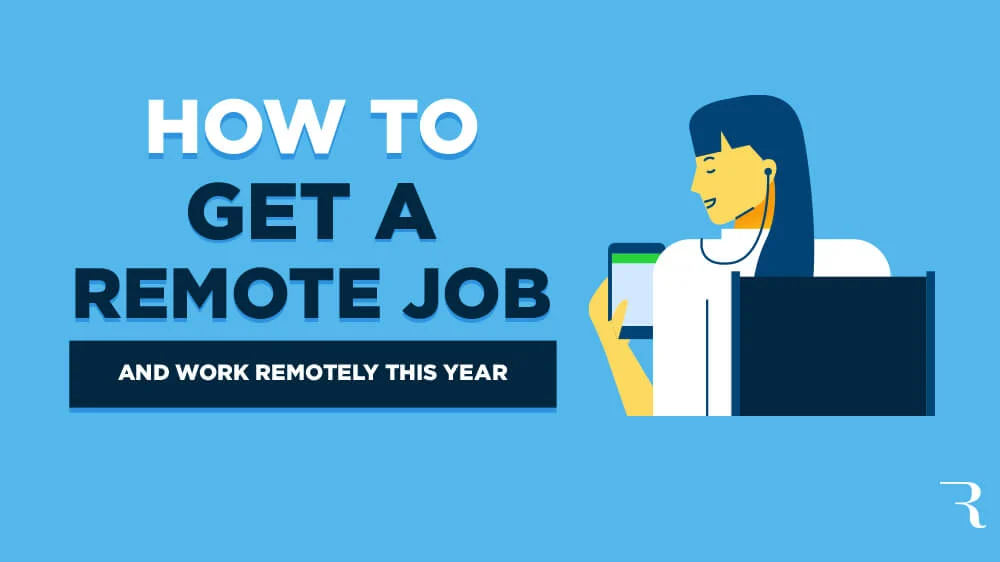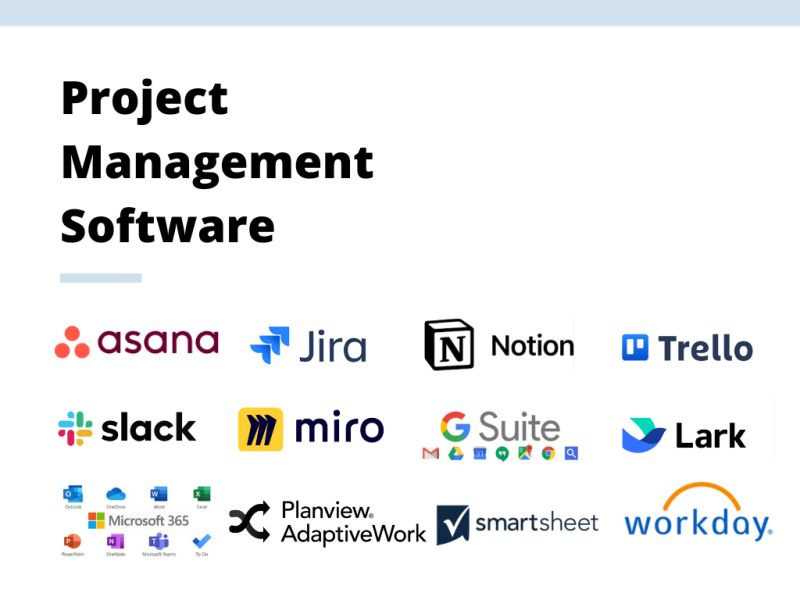Tired of the daily commute, the office politics, and feeling stuck in your 9-to-5 routine? If you’ve been dreaming of more flexibility, better earning potential, and the freedom to work from anywhere, a remote tech career might be just what you need. But transitioning from a traditional desk job to a location-independent lifestyle can feel overwhelming. That’s why I’ve put together these seven practical steps to help you pivot smoothly into the world of remote tech. By the end of this guide, you’ll have a clear roadmap for turning your tech aspirations into reality.
Introduction
Ever wish you could log in from a beachside café or your cozy living room instead of rushing to an office cubicle every morning? You’re not alone. Remote tech roles—from software development to digital marketing—have exploded in popularity, and it’s not just because of the pandemic. Companies worldwide are embracing flexible schedules, global talent pools, and cutting-edge collaboration tools. This isn’t just a fad; it’s the new way of work.
Why Remote Tech Careers Are on the Rise
The shift to remote tech roles isn’t just a Silicon Valley thing anymore. You can find fully remote opportunities across sectors like healthcare, finance, education, and more. Several factors fuel this rise:
- Global Talent Pool: Companies can now hire top-notch talent from anywhere on the planet.
- Lower Overheads: Fewer office expenses for the employer, more freedom for the employee.
- Advancements in Cloud Computing: Platforms like AWS and Microsoft Azure make it easier than ever to build, deploy, and manage applications from any location.
The Allure of Flexibility and Freedom
One of the biggest perks of a remote tech career is control over your schedule. Morning person? Tackle your coding tasks at 6 AM. Night owl? Work on that UI design at midnight. This flexibility can significantly reduce burnout and increase job satisfaction. Plus, imagine the money saved by cutting down on commutes, expensive office wear, and those daily $5 coffees.
But freedom also comes with responsibility. Without a solid plan, it’s easy to feel overwhelmed. That’s why this guide is here to help you navigate the transition step by step.
Step 1: Assess Your Current Skills and Interests
Before you jump into online coding bootcamps or quit your job on a whim, take a moment to evaluate where you stand.
Taking Inventory of Transferable Skills
You might be surprised at how much you already bring to the table. Skills like communication, project management, or problem-solving are highly valued in tech. Even if you’ve never written a line of code, you likely have experience collaborating with teams, handling customers, or analyzing data. These soft skills can form the foundation of your remote tech career.
Identifying Your Tech Niche
The tech world is vast—think front-end web development, cybersecurity, data analysis, or UX design. Take some time to explore which niche aligns best with your interests and natural strengths. If you love creative work, maybe web design or digital marketing is for you. More analytical? Consider data science or software engineering.
Tools to Map Out Strengths and Weaknesses
Tools like the Myers-Briggs Type Indicator, StrengthsFinder, or even a simple SWOT analysis (Strengths, Weaknesses, Opportunities, Threats) can offer insights into your personality and aptitudes. Don’t overthink it; these are just starting points to help you narrow down your options.
Read Also 8 Tools Every Digital Enthusiast Should Use to Learn AI and Machine Learning
Step 2: Upskill and Gain Qualifications
Once you’ve zeroed in on a tech niche, the next step is building expertise. The good news? You don’t need a four-year computer science degree to break into tech. There are plenty of resources to help you learn the ropes.
Online Courses and Tutorials
Platforms like Coursera, Udemy, and edX offer courses covering everything from Python programming to cloud architecture. They let you learn at your own pace, often with hands-on projects to build up your portfolio.
Certificates and Bootcamps
If you crave a more structured learning experience, consider enrolling in a coding bootcamp. These intensive programs can transform you from novice to job-ready in a matter of months. Look for bootcamps that specialize in remote placements, as they often have partnerships with companies open to hiring graduates who prefer to work from home.
High CPC Tech Keywords for Better Visibility
For a remote tech career, high CPC (Cost Per Click) keywords can help you stand out in searches and on job boards. Keywords like “remote software developer,” “cybersecurity specialist,” and “cloud computing certification” often rank high, indicating both demand and strong monetization potential. Using these terms in your online profiles or resume can attract recruiters looking for specific skills.
Step 3: Start Building a Professional Portfolio
You wouldn’t hire a wedding photographer who can’t show you any wedding photos, right? The same logic applies to tech.
Showcasing Projects
Hands-on projects are the quickest way to prove you can walk the walk. Start small: build a personal website, contribute to open-source projects on GitHub, or design a mock app. Every project you complete adds to your credibility.
Using GitHub or Personal Websites
GitHub is a gold standard for showcasing code. Treat it like your digital resume, keeping your repositories organized and well-documented. If you’re into design or marketing, consider building a personal website or using platforms like Behance or Dribbble to display your portfolio.
Branding Yourself Through LinkedIn
Don’t underestimate the power of a polished LinkedIn profile. Use a professional headshot, write a compelling summary, and fill out relevant sections with the right keywords (like “remote tech jobs,” “software developer,” or “digital marketing specialist”). Join LinkedIn groups focused on remote work and tech niches to network with like-minded professionals.
Read Also 7 Must-Know Concepts in AI and Machine Learning for Beginners
Step 4: Remote Job Hunting Strategies
It’s time to put yourself out there. Remote job hunting is slightly different from traditional approaches but can be just as rewarding if you know where to look.
Tailoring Your Resume for Remote Roles
Emphasize any previous remote experiences, even if it was just freelance or occasional telecommuting. Highlight your proficiency with collaboration tools like Slack, Trello, or Zoom to show you can excel in a distributed team.
Where to Find Remote Tech Jobs
Specialized websites like Remote.co, We Work Remotely, and FlexJobs list thousands of remote positions, including developer, designer, and analyst roles. You can also filter LinkedIn job searches by location—selecting “remote” as an option.
Common Mistakes to Avoid in Remote Applications
- Generic Cover Letters: Personalize each application by referencing the company’s mission or a specific project.
- Ignoring Time Zones: If you live in Singapore but the job is U.S.-based, mention your ability to overlap with their work hours.
- Low-Quality Portfolio: A single well-executed project can outshine a dozen half-baked ones.
Step 5: Networking and Mentorship
A solid network can open doors you never knew existed, especially in tech.
Online Communities and Tech Forums
Platforms like Reddit (e.g., r/RemoteWork, r/cscareerquestions), Slack channels, and Discord servers host vibrant communities where you can ask questions, share insights, and even find job leads.
Attending Virtual Conferences
Conferences and meetups have largely gone virtual, making them more accessible than ever. Attending these events not only expands your knowledge but can also lead to conversations with potential employers or mentors.
Building Meaningful Connections
Networking isn’t about blasting your resume to everyone you meet. It’s about cultivating genuine relationships. Offer help, share resources, and show sincere interest in others’ work. People remember kindness and competence, which can lead to referrals or insider tips.
Step 6: Mastering Remote Tools and Workflows
Transitioning from a structured office to a remote environment can be jarring. Equip yourself with the tools and processes that make remote collaboration seamless.
Communication Platforms (Slack, Zoom)
You’ll likely spend a good chunk of your day on Slack or Zoom if you join a remote tech team. Learn best practices, like setting custom statuses or scheduling Zoom calls with clear agendas. Over-communicate rather than leaving colleagues guessing your progress.
Project Management Tools (Trello, Asana)
Remote teams thrive on clarity. Tools like Trello or Asana let you organize tasks, track deadlines, and visualize project timelines. Being proficient in these platforms can boost your productivity and impress future employers.
Handling Time Zones and Scheduling
Working with a global team means juggling different time zones. Use tools like World Time Buddy or Google Calendar to find overlapping hours for meetings. Be mindful of your co-workers’ schedules—nobody appreciates an urgent ping at 2 AM.
Step 7: Planning Your Exit Strategy
Now that you’ve built up skills, networks, and confidence, it’s time to plan your grand departure from the 9-to-5 world.
Timing Your Transition from 9-to-5
Leaving a steady paycheck can be daunting. If possible, secure a remote offer before you hand in your notice. Alternatively, build up a freelance client base in your spare time to cushion the financial blow.
Financial Safety Nets
Save up an emergency fund—ideally three to six months’ worth of expenses. If you’re switching to freelance or contract-based work, remember that income might fluctuate month to month.
Mental Preparation for Change
Stepping into the unknown can be both exhilarating and stressful. Give yourself time to adjust, and don’t be too hard on yourself if the first few weeks are chaotic. Adapting to a remote tech role is a learning curve, but the payoff is often life-changing.
Overcoming Common Challenges
Even dream jobs come with hurdles. Here’s how to handle a few of the common stumbling blocks.
Impostor Syndrome in Tech
Tech evolves so quickly that even seasoned pros can feel like they’re faking it. Remind yourself that everyone starts somewhere. Seek feedback, celebrate small wins, and consider pairing up with a mentor to accelerate your learning.
Isolation and Burnout
Working from home can feel lonely, and the blurred lines between work and personal life can lead to burnout. Set boundaries: designate a workspace, stick to a daily schedule, and carve out time for social activities or hobbies.
Strategies for Work-Life Balance
Productivity tools like the Pomodoro Technique or Focus@Will can help you stay on task. Also, be sure to plan breaks and vacations. Remote work shouldn’t mean you’re always available. Guard your downtime to recharge.
Read Also What Skills Will Be Essential for Remote Work in 2025 and Beyond?
Sustaining Growth in Your Remote Tech Career
Landing a remote tech role is just the beginning. The real challenge is maintaining momentum.
Continuous Learning
Tech never stands still—why should you? Keep an eye on industry trends, new frameworks, or emerging programming languages. Platforms like Pluralsight or specialized YouTube channels can help you stay ahead of the curve.
Setting Long-Term Goals
Are you aiming to become a senior developer, a product manager, or launch your own startup? Mapping out a roadmap keeps you focused. Break larger goals into actionable steps, and revisit them regularly.
Adapting to Evolving Tech Trends
AI, blockchain, cloud computing—these buzzwords represent powerful forces shaping tech’s future. Stay curious, dabble in side projects, and don’t shy away from learning new skills, even if they’re outside your comfort zone.
Tools and Resources for Ongoing Success
Productivity Apps
Apps like Todoist, Notion, or Evernote can streamline your day-to-day tasks. Experiment until you find a workflow that resonates with you.
Online Resource Hubs
Websites like Stack Overflow, Dev.to, or Medium’s tech section are gold mines of tutorials and community advice. Regularly engaging with these platforms not only expands your knowledge but also gives you a sense of belonging in the global tech community.
Conferences and Tech Meetups
Virtual summits and local meetups can provide fresh perspectives and networking opportunities. Some of the best jobs are never posted publicly—they’re filled through connections made at events.
Legal and Financial Considerations
Taxes and Business Registration
Depending on your location, remote income might be subject to specific tax laws or require special registration. Consult a local accountant or use reputable online tax services to ensure compliance.
Handling Contracts and Agreements
If you go freelance, well-drafted contracts protect both you and your clients. Sites like HelloSign or DocuSign simplify the process of collecting e-signatures.
Protecting Intellectual Property
Whether you’re dealing with proprietary code, design assets, or client data, it’s crucial to understand intellectual property (IP) rights. Make sure NDAs (Non-Disclosure Agreements) or other legal frameworks are in place to safeguard sensitive information.
Case Studies of Successful Remote Tech Transitions
Sometimes, nothing motivates like real-world stories.
Interviews with Self-Taught Developers
Plenty of programmers taught themselves using free resources and built impressive careers. Hearing their journeys can provide actionable tips, from structuring study schedules to nailing job interviews.
Stories of Designers Going Freelance
UX and UI designers often find freelance work a fulfilling alternative to office gigs. Their experiences juggling multiple clients, setting rates, and managing creative processes can guide you in building your own pipeline.
Lessons from Digital Nomads
Digital nomads roam the globe while working remotely. Their tales highlight both the perks and the pitfalls—like dealing with spotty Wi-Fi in paradise or balancing work with the urge to explore new cultures.
Conclusion
Embracing the Remote Tech Revolution
Switching from a 9-to-5 grind to a remote tech career is a massive leap, but it’s also one of the most rewarding moves you can make. As more companies digitize and globalize, remote tech opportunities will only increase.
A Final Word of Encouragement
Take it one step at a time. Upskill, network, and apply for roles that excite you. Yes, you’ll face challenges—impostor syndrome, time zone hassles, maybe even skepticism from friends and family. But with determination, the right resources, and a burning desire for a more flexible, fulfilling life, you’ll make it happen.
Now that you know the roadmap, what’s stopping you? Put these steps into action, and I’ll see you on the other side—maybe from a cozy home office or a beachside coworking spot. The remote tech world is yours to explore.
Q1: Do I need a computer science degree to land a remote tech job? Not necessarily. Many successful remote tech professionals are self-taught or come from non-technical backgrounds. Online courses and bootcamps can provide the foundation you need.
Q2: How long does it take to transition to a remote tech career? This varies. Some people find entry-level tech jobs within a few months of intensive study, while others take a year or more to build up their portfolio and network.
Q3: Which remote tech roles offer the highest salaries? Positions like software engineer, data scientist, and cloud architect often command top pay. However, digital marketing, UX design, and cybersecurity can also yield competitive salaries.
Q4: How do I deal with time zone differences when working remotely? Use scheduling tools like World Time Buddy to find overlapping hours. Communicate boundaries clearly and consider asynchronous workflows to minimize disruptions.
Q5: Is freelancing better than a full-time remote tech role? It depends on your lifestyle and financial goals. Freelancing offers more freedom but can come with fluctuating income. A full-time remote position provides stability, benefits, and a more predictable schedule.












